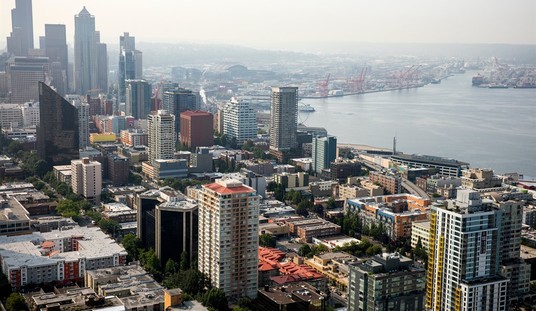The unofficial motto of Keep Portland Weird seems to be holding true in Oregon as they once again push to tinker with their economy by way of raising the minimum wage. The latest push was approved by the state legislature this week and Governor Kate Brown has already said she would sign it into law. But this one has a bit of a twist to it which make it unusual compared to most of the labor union backed “Fight For Fifteen” laws percolating around the country. They’re looking at scaling the wage back in rural areas while maximizing it in the cities. (Fox News)
The bill was crafted as a compromise between what unions, businesses and farmers want and as an attempt to thwart more aggressive proposals that could go before voters in November. Those two proposals call for a statewide minimum of $13.50 or $15, and would be phased in over half the time. Labor unions have not yet indicated whether they’ll follow through with ballot initiatives…
Oregon’s new plan imposes a series of gradual increases over six years. By 2022, the state’s current $9.25 an hour minimum – already one of the highest in the nation – would climb to $14.75 in metro Portland, $13.50 in smaller cities such as Salem and Eugene, and $12.50 in rural communities.
Those minimums dethrone Massachusetts – where the statewide rate will climb to $11 an hour next year – from the top spot, according to the Economic Policy Institute, a D.C.-based think tank that tracks wage laws across the nation.
To offer at least a sliver of credit where it’s due, Oregon is showing some signs of grappling with reality here and addressing one of the major flaws in all of these minimum wage laws popping up around the country. In virtually every state of the union you will find higher costs of living across the board in their largest cities, while more rural, agriculturally bases areas have both lower costs and lower wages. This is known in repressive, racist circles as the law of supply and demand. Unfortunately, when you mess with that law, it brings the hammer down on you fairly quickly. If you force rural, low traffic employers to pay big city wages, they will soon have to start charging big city prices for their goods and services to remain profitable. That means that all of the rural folks with more limited income feel the squeeze all the harder, particularly older residents on fixed incomes who don’t benefit from the largess of the Democrats. And employers who can’t make the adjustment nimbly enough will lay off some of their workers and move to automation wherever possible. The folks suddenly on unemployment don’t get a raise either.
The Oregon law tries to at least.mitigate this effect a bit by leaving the wages somewhat lower in smaller towns and farm country. It’s doubtful that this type of scaling would eliminate the detrimental effects entirely, but they might at least stem the damage to a limited degree. So from that standpoint, I suppose we should give a brief golf clap to Oregon’s legislature for giving a nod to the real world. But it still does nothing to address the broader question of skilled workers in blue collar lines of employment, typically without advanced degrees, who make a fair bit more than the minimum wage but aren’t up in stratospheric levels of income. Once the minimum wage goes up, there is no corresponding raise or them, and a machine operator or data entry specialist making four or five dollars an hour more than the current minimum is suddenly getting paid exactly the same amount as the guy operating the fry machine at Burger King. Why bother getting trained for a better job when you could just do the bare minimum for the same reward?
Much of this problem comes back to the unions, as is the case with so many other sore spots. Their “work” in this area is very well funded and politically powerful, but what are they really up to? Check out this three minute video from the Workforce Fairness Institute and spread it around. In places such as California where cities have been driving through higher minimum wage laws, the unions have pushed for an exemption from the law for companies which are union shops.Why? That much should be obvious. They want to pressure non-union shops out of business or strong arm them into going union. As for the union workers who don’t benefit from the higher wages? Hey, dude… sometimes when you’re making an omelet you have to break a few eggs.









Join the conversation as a VIP Member